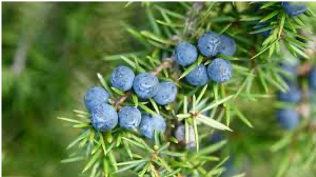From our lovely Food Finder Krissy Billiczky
Today’s herb is Jasmine
 Jasmine tea is a type of tea, scented with the aroma of blossoms from the jasmine plant.
Jasmine tea is a type of tea, scented with the aroma of blossoms from the jasmine plant.
It’s typically based on green tea, but sometimes black or white tea is used instead.
Blossoms from common jasmine (Jasminum officinale) or sampaguita (Jasminum sambac) are placed alongside tea leaves in storage or blended with stored tea, allowing the aroma to infuse.
Because jasmine tea is typically made from green tea leaves, it provides many of the same powerful health benefits that you would get from drinking green tea.
Scientific research is limited but it is suggested that Jasmine tea has the following benefits:
- can protect against heart disease due to being loaded with powerful anti-oxidant compounds called polyphenols
- due to these same polyphenols, jasmine tea can help protect against Alzheimer’s and Parkinson’s
- can help protect cell against free radical damage due to high anti-oxidant properties
- may aid weight loss by boosting metabolism
- can promote good oral health as jasmine tea polyphenols may help neutralize plaque-forming bacteria and may also combat bad breath
- can boost brain function as it contains caffeine and L-theanine
- may help lower risk of type to diabetes by helping your body use insulin more effectively
- may have cancer fighting properties due to its anti-oxidant compounds polyphenols supressing the growth and spread of cancer cells
Jasmine tea is generally safe, but people who are sensitive to caffeine and suffer from iron deficiency should watch their intake.
Due to its caffeine content, pregnant ladies should reduce or avoid.
If in doubt, s ever, please seek advice from a healthcare or medical professional.
Today’s spice is Juniper berries
 The juniper tree, Juniperus communis, is an evergreen shrub that grows in many parts of the world, including North America, Europe, and Asia.
The juniper tree, Juniperus communis, is an evergreen shrub that grows in many parts of the world, including North America, Europe, and Asia.
It produces seed cones that are commonly known as juniper berries, mostly deep blue in colour. Their aroma is often described as woody or spicy.
They have a tart, pine-like flavour and are commonly used in small amounts as a spice or flavouring agent.
These small berries have been used for culinary and medicinal purposes since ancient times, and current research suggests that they may offer various health benefits
Although scientific research is limited, but these berries are thought to carry the following benefits:
- juniper berries are high in vitamin C and anti-oxidants
- may provide anti-inflammatory and anti-oxidant effects due to being rich in flavonoids
- may have antidiabetic properties due to anti-oxidant properties
- may promote heart health by improving HDL (good) cholesterol levels and reducing high triglyceride levels
- juniper berries extract carry antifungal and anti-bacterial properties
Juniper berries can be found as dried berries, oil or as tea.
Unlike other berries, juniper berries are typically used only in small amounts to flavour foods — not eaten in large portions.
They are a popular ingredient for seasoning recipes and infusing beverages, they are used to add flavour to marinades and spice rubs and give gin its distinctive taste.
Juniper berries are safe for most people as in small amounts flavouring but should not be eaten by children and pregnant ladies.
If in doubt, as ever, please seek advice from a healthcare or medical professional.
